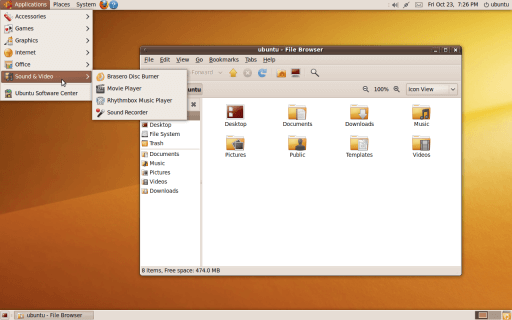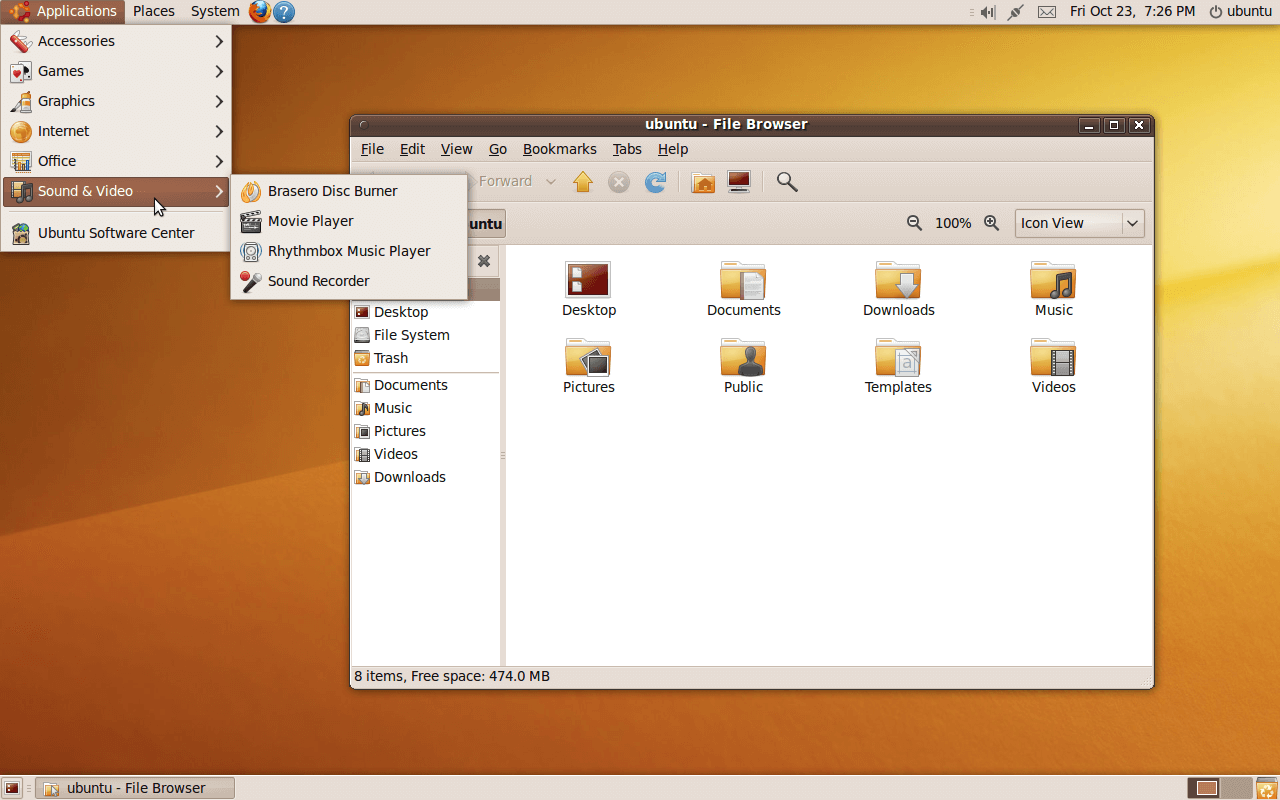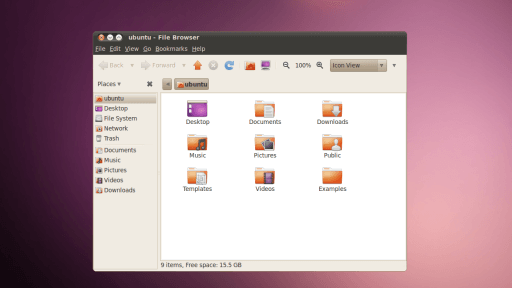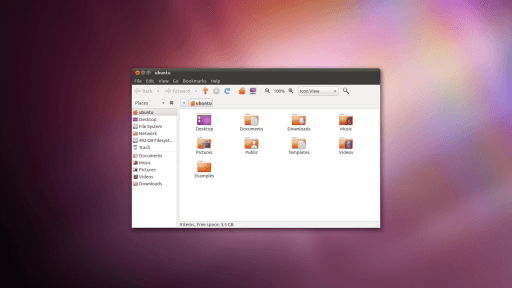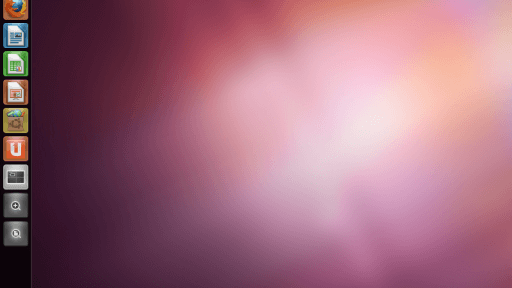Here you can download the official Ubuntu 9.10 “Karmic Koala” ISO for free.
Ubuntu 9.10 (Karmic Koala), released on 29 October 2009, is Canonical’s 11th release of Ubuntu. Support ended in April 2011. The desktop installation of Ubuntu 9.10 replaced Pidgin with Empathy Instant Messenger as its default instant messaging client. The default filesystem is ext4, and the Ubuntu One client, which interfaces with Canonical’s new online storage system, is installed by default. It introduced Grub 2 beta as its default bootloader. It also replaced Add/Remove Programs (gnome-app-install) with Ubuntu Software Center, while Canonical stated their intention to possibly replace Synaptic, Software Sources, Gdebi and Update Manager in Ubuntu 10.04. Karmic Koala also includes a slideshow during the installation process (through ubiquity-slideshow) that highlights applications and features in Ubuntu.
In an announcement to the community on 20 February 2009, Shuttleworth explained that 9.10 would focus on improvements in cloud computing on the server using Eucalyptus, a new theme, as well as further improvements in boot speed and development of the Ubuntu Netbook Remix. The new theme was later delayed to version 10.04, and only minor revisions were made to the default theme. Other graphical improvements included a new set of boot up and shutdown splash screens, a new login screen with a new transition into the desktop and greatly improved performance on Intel graphics chip-sets.
In June 2009, Canonical created the One Hundred Paper Cuts project, focusing developers to fix minor usability issues. A “paper cut” was defined as, “a trivially fixable usability bug that the average user would encounter on his/her first day of using a brand new installation of the latest version of Ubuntu Desktop Edition.”
Desktop CD
The desktop CD allows you to try Ubuntu without changing your computer at all, and at your option to install it permanently later. This type of CD is what most people will want to use. You will need at least 256MiB of RAM to install from this CD.
There are two images available, each for a different type of computer:
PC (Intel x86) desktop CD
For almost all PCs. This includes most machines with Intel/AMD/etc type processors and almost all computers that run Microsoft Windows, as well as newer Apple Macintosh systems based on Intel processors. Choose this if you are at all unsure.
64-bit PC (AMD64) desktop CD
Choose this to take full advantage of computers based on the AMD64 or EM64T architecture (e.g., Athlon64, Opteron, EM64T Xeon, Core 2). If you have a non-64-bit processor made by AMD, or if you need full support for 32-bit code, use the Intel x86 images instead.
Desktop image
The desktop image allows you to try Ubuntu without changing your computer at all, and at your option to install it permanently later. You will need at least 256MiB of RAM to install from this image.
There are two images available, each for a different type of computer:
Marvell Dove desktop image
For Dove boards.
Freescale i.MX51 desktop image
For i.MX51 boards.
Server install CD
The server install CD allows you to install Ubuntu permanently on a computer for use as a server. It will not install a graphical user interface.
There are two images available, each for a different type of computer:
PC (Intel x86) server install CD
For almost all PCs. This includes most machines with Intel/AMD/etc type processors and almost all computers that run Microsoft Windows, as well as newer Apple Macintosh systems based on Intel processors. Choose this if you are at all unsure.
64-bit PC (AMD64) server install CD
Choose this to take full advantage of computers based on the AMD64 or EM64T architecture (e.g., Athlon64, Opteron, EM64T Xeon, Core 2). If you have a non-64-bit processor made by AMD, or if you need full support for 32-bit code, use the Intel x86 images instead.
Alternate install CD
The alternate install CD allows you to perform certain specialist installations of Ubuntu. It provides for the following situations:
- setting up automated deployments;
- upgrading from older installations without network access;
- LVM and/or RAID partitioning;
- installs on systems with less than about 256MiB of RAM (although note that low-memory systems may not be able to run a full desktop environment reasonably).
In the event that you encounter a bug using the alternate installer, please file a bug on the debian-installer package.
There are two images available, each for a different type of computer:
PC (Intel x86) alternate install CD
For almost all PCs. This includes most machines with Intel/AMD/etc type processors and almost all computers that run Microsoft Windows, as well as newer Apple Macintosh systems based on Intel processors. Choose this if you are at all unsure.
64-bit PC (AMD64) alternate install CD
Choose this to take full advantage of computers based on the AMD64 or EM64T architecture (e.g., Athlon64, Opteron, EM64T Xeon, Core 2). If you have a non-64-bit processor made by AMD, or if you need full support for 32-bit code, use the Intel x86 images instead.
UNR live CD
The live CD allows you to try Ubuntu Netbook Remix (UNR) without changing your computer at all, and at your option to install it permanently later. This live CD is optimized for netbooks with screens up to 10″. You will need at least 256MB of RAM to install from this CD.
There is one image available:
PC (Intel x86) UNR live CD
For almost all PCs. This includes most machines with Intel/AMD/etc type processors and almost all computers that run Microsoft Windows, as well as newer Apple Macintosh systems based on Intel processors. Choose this if you are at all unsure.

